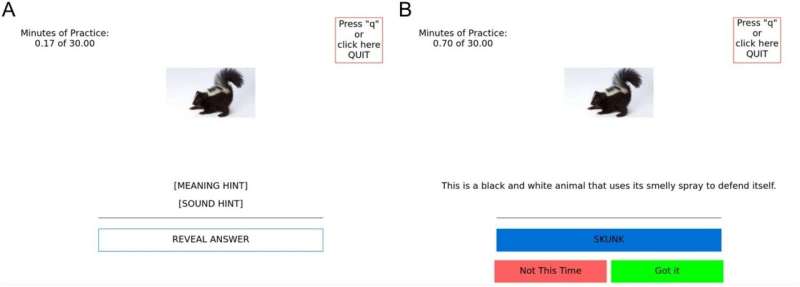Adaptive language-learning software helps stroke survivors regain critical communication skills

Many stroke survivors experience aphasia, a speech and language processing disorder that can have serious, negative impacts on numerous aspects of daily life. According to a new Baycrest study, using adaptive language-learning software is extremely beneficial in helping these individuals regain their language skills.
Current treatment approaches for aphasia typically require a specialized therapist, whose time is both scarce and expensive; and the therapy is usually conducted in a clinical setting. In contrast, individuals can use language-learning software when and where they choose.
"These results are highly encouraging and suggest that the use of adaptive language-learning software should be considered for widespread adoption in treating aphasia," says Dr. Jed Meltzer, Baycrest's Canada Research Chair in Interventional Cognitive Neuroscience, senior scientist at Baycrest's Rotman Research Institute and senior author of this study.
The study, published recently in Neuropsychological Rehabilitation, looked at 28 subjects who were recruited from aphasia support programs and aphasia-related groups on social media. Each participant began by completing an evaluation with a researcher, where they were shown pictures and asked to name them—for example, "umbrella" or "squirrel." Next, participants used an online program to practice identifying images they could not name during their initial evaluation. Each picture included two hints and the answer. Participants were asked to use this program 30 minutes a day for two weeks.
As part of the study, researchers tested three different strategies to schedule the repetition of words in the software. One of these was an adaptive "spaced repetition" strategy, which presents correctly named items less frequently, thus focusing more on the items that users do not remember correctly. After finishing their training, participants completed two additional evaluations. The first was conducted the week following the training, and the second occurred four weeks later, to test how well they had retained their skills.
The researchers found that participants successfully relearned the majority of the trained items using the software. The adaptive spaced repetition strategy performed the best, meaning there was no downside to dropping items from the practice list once they had been mastered.
"Our research suggests that stroke survivors and others living with aphasia can improve their language skills using apps over several months, and can potentially relearn hundreds of words if they practice enough," says Dr. Meltzer. "Adaptive language-learning software using spaced repetition appears to be extremely helpful in scaling treatment for stroke survivors and other individuals living with aphasia, ultimately helping to improve their quality of life."
In a follow-up study, the researchers will evaluate the benefit of app-based practice for general skills, such as short-term memory and attention, in addition to training on relearning specific words, to maximize the degree of recovery possible using adaptive software.
More information: John de Grosbois et al, Asynchronous, online spaced-repetition training alleviates word-finding difficulties in aphasia, Neuropsychological Rehabilitation (2022). DOI: 10.1080/09602011.2022.2143822


















